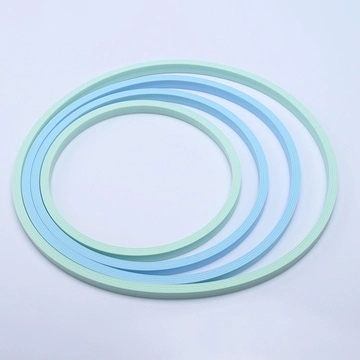Silicone sealing rings play a crucial role in automotive engineering. These components are essential for ensuring the proper functioning of various automotive systems. Their unique properties make them suitable for a wide range of applications in vehicles. Understanding the importance of silicone sealing rings can help in appreciating their contribution to automotive design and performance.
Material Properties of Silicone
Silicone is a synthetic polymer known for its excellent thermal stability and flexibility. These properties make silicone an ideal material for sealing applications in automotive engineering. Silicone can withstand extreme temperatures, ranging from very low to very high, without losing its integrity. This thermal resistance is vital for automotive components that operate in harsh environments, such as engines and exhaust systems.
Resistance to Chemicals
Automotive environments expose components to various chemicals, including oils, fuels, and coolants. silicone seal ring exhibit remarkable resistance to these substances. This chemical stability ensures that the sealing rings do not degrade or lose their sealing capabilities over time. By maintaining their integrity, silicone sealing rings help prevent leaks and protect other components from damage.

Durability and Longevity
Durability is a key factor in automotive engineering. Silicone sealing rings are designed to withstand mechanical stress and environmental factors. Their resilience ensures that they can endure the rigors of daily driving and the challenges posed by different weather conditions. This durability translates to a longer lifespan for automotive components, reducing the need for frequent replacements and maintenance.
Effective Sealing Performance
The primary function of silicone sealing rings is to provide effective sealing. They create a barrier that prevents the leakage of fluids and gases in automotive systems. This sealing performance is critical for maintaining the efficiency and safety of vehicles. By preventing leaks, silicone sealing rings help ensure that engines operate smoothly and that emissions are controlled.
Applications in Automotive Systems
Silicone sealing rings are used in various automotive systems. They are commonly found in engines, transmissions, and cooling systems. In engines, they seal critical components such as oil pans and valve covers. In transmissions, they help maintain fluid integrity and prevent leaks. In cooling systems, silicone sealing rings ensure that coolant remains contained, preventing overheating and potential engine damage.
Temperature Resistance in Engine Applications
Engines generate significant heat during operation. Silicone sealing rings are designed to withstand these high temperatures without compromising their sealing properties. This temperature resistance is crucial for maintaining the performance and reliability of engine components. By using silicone sealing rings in engine applications, manufacturers can enhance the overall durability of the engine.
Vibration Absorption
Vehicles experience various vibrations during operation. Silicone sealing rings have the ability to absorb vibrations, which helps protect sensitive components from damage. This vibration-dampening property contributes to the longevity of automotive systems. By minimizing the impact of vibrations, silicone sealing rings play a vital role in maintaining the integrity of the vehicle.
Cost-Effectiveness
While silicone sealing rings may have a higher initial cost compared to some alternatives, their long-term benefits make them a cost-effective choice. Their durability and resistance to wear reduce the need for frequent replacements. This longevity translates to lower maintenance costs for automotive manufacturers and consumers alike. Investing in high-quality silicone sealing rings can lead to significant savings over time.

Environmental Considerations
As the automotive industry moves towards more sustainable practices, the use of silicone sealing rings aligns with these goals. Silicone is a more environmentally friendly material compared to some traditional sealing options. Its durability means that fewer replacements are needed, reducing waste. Additionally, silicone can be recycled in certain applications, further contributing to environmental sustainability.
Conclusion
In conclusion, silicone sealing rings play a vital role in automotive engineering. Their unique material properties, including thermal stability, chemical resistance, and durability, make them essential components in various automotive systems. By providing effective sealing performance, silicone sealing rings help enhance the efficiency and safety of vehicles. As the automotive industry continues to evolve, the importance of high-quality sealing solutions like silicone rings will only increase
